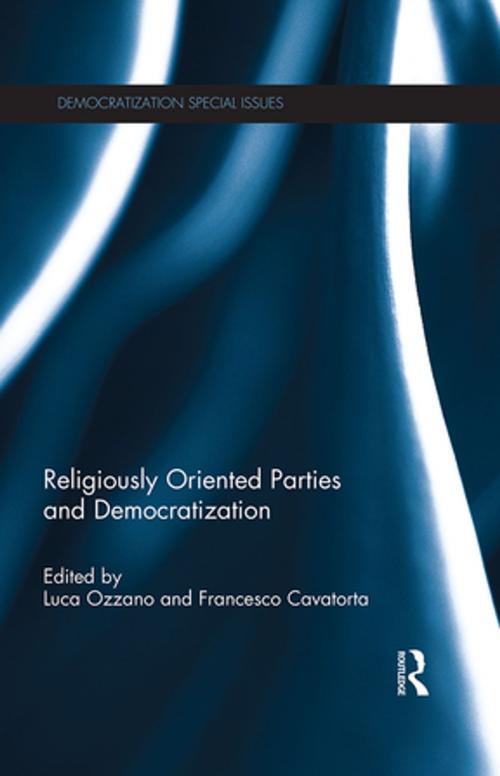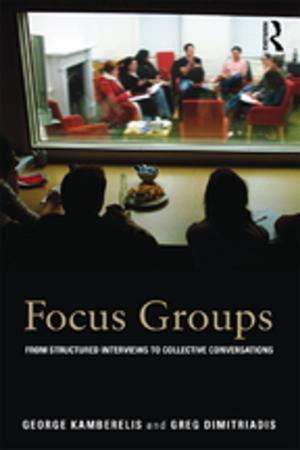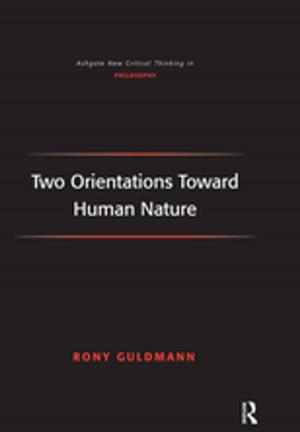Religiously Oriented Parties and Democratization
Nonfiction, Social & Cultural Studies, Political Science| Author: | ISBN: | 9781317682394 | |
| Publisher: | Taylor and Francis | Publication: | April 3, 2014 |
| Imprint: | Routledge | Language: | English |
| Author: | |
| ISBN: | 9781317682394 |
| Publisher: | Taylor and Francis |
| Publication: | April 3, 2014 |
| Imprint: | Routledge |
| Language: | English |
To the surprise of both academics and policy-makers, religion has not been relegated entirely to the private sphere; quite the contrary. Over the last few decades, religion has begun to play a significant role in public affairs and, in many cases, directly in political systems. This edited volume analyses in detail how religion and religious precepts inform the ideology, strategies and electoral behaviour of political parties. Working with an original and innovative typology of religiously oriented political parties, the book examines cases from different regions of the world and different religious traditions to highlight the significance of religion for party politics. This interest for religiously oriented parties is combined with an interest in processes of democratic change and democratic consolidation. Political parties are central to the success of processes of democratization while religion is seen in many circles as an element that prevents such success because it is perceived to be a polarising factor detrimental to the consensus necessary to build a liberal-democratic system. Through the different case-studies presented here, a much more complex picture emerges, where religiously oriented political parties perform very different and often contradicting roles with respect to democratic change.
This book was published as a special issue of Democratization.
To the surprise of both academics and policy-makers, religion has not been relegated entirely to the private sphere; quite the contrary. Over the last few decades, religion has begun to play a significant role in public affairs and, in many cases, directly in political systems. This edited volume analyses in detail how religion and religious precepts inform the ideology, strategies and electoral behaviour of political parties. Working with an original and innovative typology of religiously oriented political parties, the book examines cases from different regions of the world and different religious traditions to highlight the significance of religion for party politics. This interest for religiously oriented parties is combined with an interest in processes of democratic change and democratic consolidation. Political parties are central to the success of processes of democratization while religion is seen in many circles as an element that prevents such success because it is perceived to be a polarising factor detrimental to the consensus necessary to build a liberal-democratic system. Through the different case-studies presented here, a much more complex picture emerges, where religiously oriented political parties perform very different and often contradicting roles with respect to democratic change.
This book was published as a special issue of Democratization.















